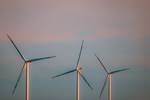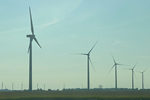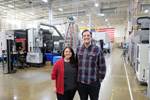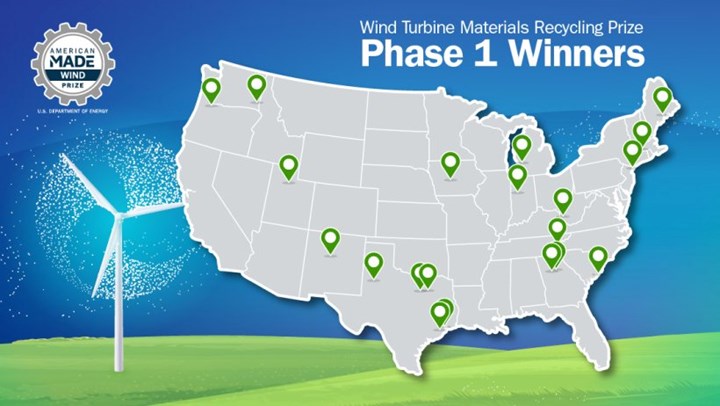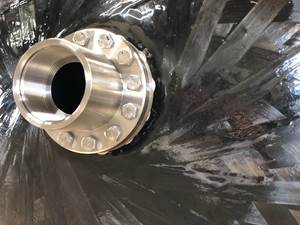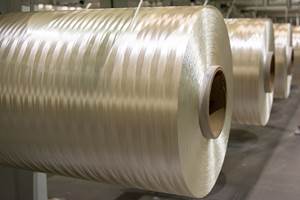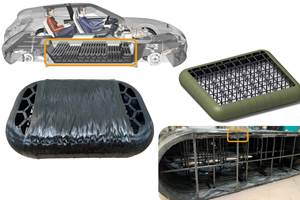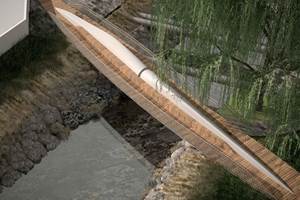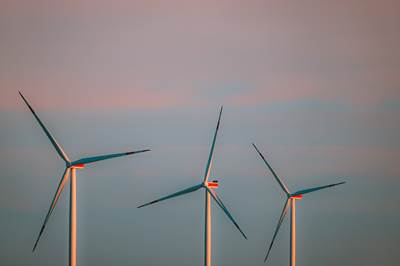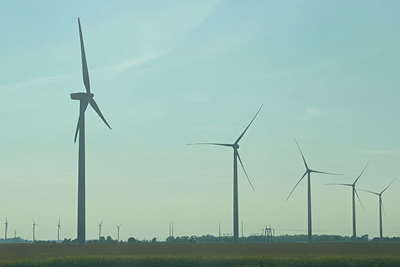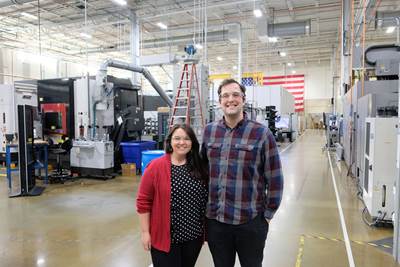DOE announces Wind Turbine Materials Recycling Prize winners
Twenty U.S. teams from 15 states were selected for Phase 1 of funded efforts to develop, mature and commercialize recycling technologies for FRPs and rare earth elements used in wind turbines.
The U.S. Department of Energy (DOE, Washington, D.C., U.S.) has announced 20 winners of the first phase of the Wind Turbine Materials Recycling Prize. The $5.1 million, two-phase competition running from 2023-2024, funded by the Bipartisan Infrastructure Law, aims to develop a cost-effective and sustainable recycling industry for key wind turbine materials not currently recycled commercially: fiber-reinforced composites and rare earth elements.
Competition efforts, in addition to helping the environment by reducing the U.S.’ need to extract and process raw materials, will help:
- Adopt commercially mature recycling technologies from other industries and create synergistic collaborations.
- Develop recycling technologies and processes that have not yet been applied commercially in the U.S.
- Enhance domestic energy security by reducing the nation's dependence on foreign materials.
- Commercialize technologies that have the potential to create well-paying jobs and grow the domestic wind energy industry.
- Attract new talent and expertise to the wind energy industry and engage entities that have not previously worked with DOE.
- Expand DOE's ongoing efforts to advance wind turbine materials recycling.
- Achieve a carbon-pollution-free power sector by 2035 and net-zero emissions by 2050.
About 85-90% of the mass of a wind turbine is made of materials that can already be commercially recycled. This prize aims to close the gap on the remaining 10-15% of unrecyclable material, which is primarily carbon fiber and fiberglass (found in wind turbine blades, nacelle covers and hub covers), and rare earth elements like neodymium and dysprosium (found in generators).
Twenty teams from 15 states were selected as winners of the Initiate! phase of the prize for their innovative ideas to enhance wind material recycling technologies and processes. Each of the winning teams received $75,000 and an invitation to move into the final phase of the competition, Accelerate!, where they will develop prototypes of their technologies. Up to six teams will be named winners and receive a cash prize of $500,000 and vouchers valued at $100,000 to work with DOE national laboratories.
“These winning teams presented innovative technology ideas that exemplify the creative, problem-solving skills we need to build a highly sustainable wind turbine recycling industry,” says Jeff Marootian, principal deputy assistant secretary for energy efficiency and renewable energy. “On top of that, these domestic recycling solutions enhance our energy security by reducing the nation’s dependence on foreign materials.”
The Phase One winning teams are:
- A New Fiber Spinning for Composite Recycling (Athens, Georgia)
- A Novel Method for Recycling Neodymium Magnet (Salt Lake City, Utah)
- Blades for Large-Format Additive Manufacturing (Orono, Maine)
- Chemolysis Recycling of All Turbine Blade Material (Albuquerque, New Mexico)
- Circular Mechanical Recycling of Wind Turbines (Charleston, South Carolina)
- Composite Fiber Recovery and Resin Recycling (Amherst, Maine)
- Continuous Chemical Recycling at Ambient Pressure (Pullman, Washington)
- Domestic Rare Earth Recovery From Wind Turbines Using ADR (Boone, Iowa)
- Flash Composite Recycling: Turbine Blades to Silicon Carbide (Houston, Texas)
- Hybrid Composites from Wood and Wind Turbine Blades (Denton, Texas)
- Launching Circular Composite Infrastructure (Knoxville, Tennessee)
- Mobile On-Site Wind Turbine Blade Shredder System (Huntington, West Virginia)
- Mobile Wind Blade Recycling for Concrete (Grand Rapids, Michigan)
- PulseWave Resonance Frequency Recycling Technology (Allen, Texas)
- Rare Earth Element Production with Net-Zero Carbon Emission (West Lafayette, Indiana)
- Recycling Wind Turbine Blades to Asphalt (Lubbock, Texas)
- REEMAG Breakthrough Magnet Recycling (New York City, New York)
- Resin-Bonded Coatings for Concrete (Houston, Texas)
- Re-Wind USA (Atlanta, Georgia)
- RUTE Suntracker Footing (Portland, Oregon)
Learn more about the winning teams and their projects.
The Wind Turbine Materials Recycling Prize is funded by DOE’s Wind Energy Technologies Office (WETO). It is part of DOE’s American Made Challenges program and is administered by the National Renewable Energy Laboratory (NREL)
Related Content
Infinite Composites: Type V tanks for space, hydrogen, automotive and more
After a decade of proving its linerless, weight-saving composite tanks with NASA and more than 30 aerospace companies, this CryoSphere pioneer is scaling for growth in commercial space and sustainable transportation on Earth.
Read MoreBio-based acrylonitrile for carbon fiber manufacture
The quest for a sustainable source of acrylonitrile for carbon fiber manufacture has made the leap from the lab to the market.
Read MoreTU Munich develops cuboidal conformable tanks using carbon fiber composites for increased hydrogen storage
Flat tank enabling standard platform for BEV and FCEV uses thermoplastic and thermoset composites, overwrapped skeleton design in pursuit of 25% more H2 storage.
Read MoreRecycling end-of-life composite parts: New methods, markets
From infrastructure solutions to consumer products, Polish recycler Anmet and Netherlands-based researchers are developing new methods for repurposing wind turbine blades and other composite parts.
Read MoreRead Next
DOE funds project for 3D-printed wind blade tooling
Targeting U.S. wind energy, the program backs Purdue’s CMSC center and industry partners to develop the foundation for automated tooling manufacture, supporting new innovations in composite materials, other technology elements.
Read MoreEpisode 43: Emphasizing the recycling of wind blades
CW Talks discusses Ford Motor Company’s involvement with the EMPHASIZING project, a UK consortium working to develop a material from recycled glass fiber with mechanical properties superior to virgin glass.
Read MoreScaling up sustainable solutions for fiber-reinforced composites
Oak Ridge National Laboratory's Sustainable Manufacturing Technologies Group helps industrial partners tackle the sustainability challenges presented by fiber-reinforced composite materials.
Read More

